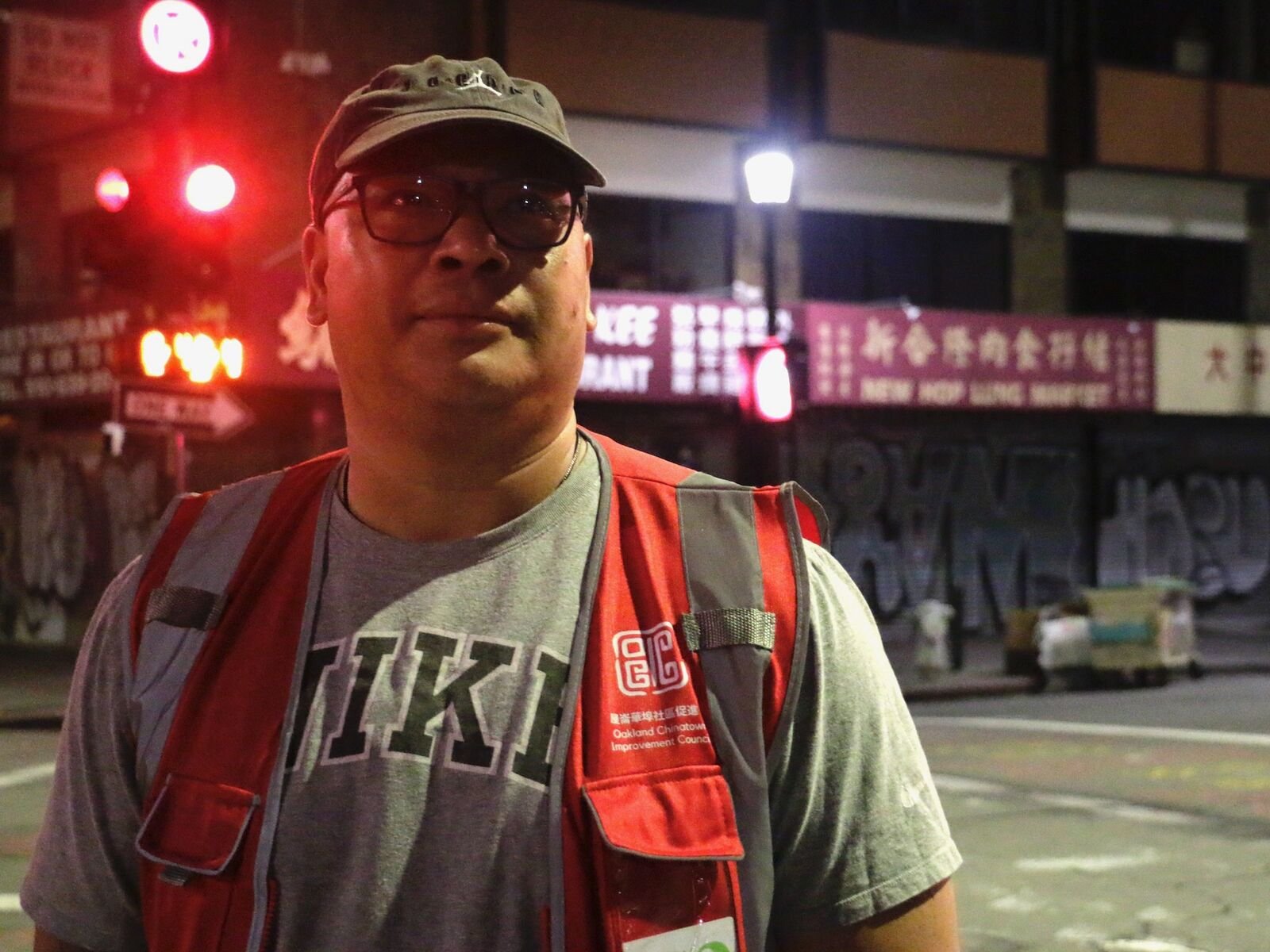
It’s 5 a.m. and the seagulls are perched on top of Da Feng Feng Seafood in Chinatown, screeching. “They’re here for the trash,” Sakhone Lasaphangthong says, pointing with blue medical gloves to an overturned garbage can.
Near the littered food scraps are a giant TV and mattress on the sidewalk. Sakhone snaps a photo that he sends to SeeClickFix, the city’s citizen reporting app for illegal dumping. Last year, he sent over 200 of those photos. As a community ambassador with the nonprofit Family Bridges, part of his job is to make sure the business owners can open their grates with pride when the sun rises.
Around the corner on Webster Street, water blasts from the power washer Kao Saetuern uses to clean the ramp at Asian Health Services. Usually, Sakhone is the one responsible for the sheen of wet cement, but today he’s training his co-worker on a second truck because he can’t keep up with the demand. Over on 10th Street, Somsak Uppasay pushes a garbage can, its wheels squeaking on the pavement. Reece Reed sweeps.
As anti-Asian hate increased nationally during the pandemic, anxiety and fear became the norm in Oakland’s Chinatown. While officials and residents debated whether to increase police presence, eventually installing a community liaison officer, volunteer efforts like the Blue Angels and Toishan Association foot patrol groups filled in the gap. The ambassador program that now employs Sakhone, which started in 2017 through the Asian Prisoner Support Committee before Family Bridges adopted it two years ago, was part of that collective effort. It continues to this day, quietly growing.
For a short while, it was only Sakhone. Now he leads a team of seven. Every day, the morning crew dons green reflective vests and gets to work cleaning the 52-block area of the Chinatown Community Benefits District before doing community outreach the rest of the day. The crew is used to getting up that early, as all are formerly incarcerated — including Sakhone, who spent 20 years in the California prison system on a gang-related murder charge. “I came home and felt the urge to give back for the pain I caused,” he said. Sometimes, cars honk to cheer them on.




